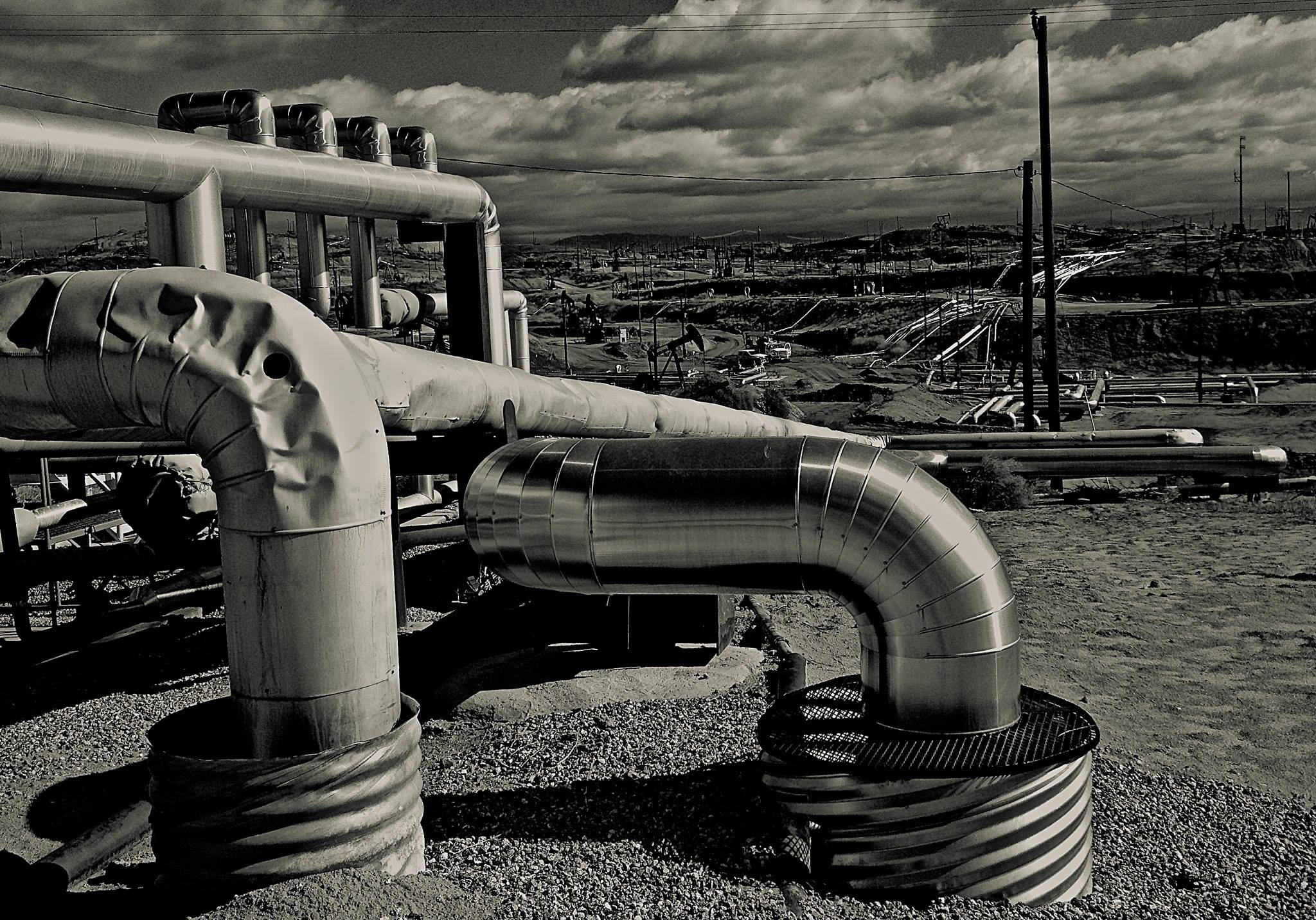The Monitoring Team: Glenda Pavon and Zachary Waller
Photo: Jerry Mathes II
Doha Creates Some Gains
Oil producers saw prices soar leading up to last week’s failed production freeze talks in Doha. Since the news came out that Russia and Saudi Arabia were considering a freeze, prices rose about 29%. Brent went up by about $10/barrel, which caused the value of world production to increase by $32 billion over the 2 months leading up to the talks. As of now, there is still no agreement to freeze or cut production among all major producers.
Oil Producers Saw $32 Billion Boost Before Doha Freeze Talks by Dan Murtaugh
China’s Largest LNG Vessel Inaugurated
China has launched their latest LNG carrier, which will transport LNG from Australia. The liquid natural gas ship, launched in Shanghai, will carry 1.5 million tons of LNG from Australia. The LNG carrier is China’s largest and is over 290 meters long and 26 meters deep. With a capacity of 174,000 cubic meters of natural gas, the ship could supply all of the families in Shanghai for a month. It is made of a special steel and over 60, 000 thermal protective boxes to keep the liquified natural gas at a constant minus 163 degrees celsius. The LNG also requires constant pressure and humidity. Not all of the ships interior parts have been assembled but will be prior to 2017 when the vessel begins operations. The LNG carrier is an important step for China. The country is the world’s largest energy consumer and third largest LNG importer. LNG imports play an important role for China since they allow the country to diversify its energy mix and cut carbon emissions. China has been working to increase its use of natural gas and decrease its dependence on coal and oil imports. The ship will begin carrying supplies between Australia and China in 2017.
Lin Nan, 2016. China’s Biggest LNG Carrier Launched in Shanghai. CCTV.com, 18 April, 2016.
http://english.cctv.com/2016/04/18/VIDEKmlgAFtlzb9S4Q1bvuQc160418.shtml
Norway Will No Longer Invest in Coal Companies
Norway ranks 21st in the world in terms of oil reserves, but with the use of these reserves, Norway has created the world’s largest sovereign wealth fund. Established over 25 years ago, fund acquires the country’s resource revenues and then invests those funds into other sectors of the economy in order to pay for future and current welfare programs. Norway’s Government Pension Fund managers announced recently that they would no longer invest in coal companies. The fund, which grew rapidly due to coal and oil reserves, but currently is smaller after the devaluation of the country’s currency ($825 billion). Due to low oil prices and increasing pressure to divest away from coal companies, the fund’s ministry formed a task force to re–examine the investment strategy. In summer 2015, the Norwegian Parliament decided to sell shares in companies that generated more than 30% of their revenues from coal. The ministry has also announced they will invest $6 billion into environmental projects. Environmental concerns in the Norway have led to this increasing pressure to move away from investments in fossil fuels but further investment in green energies is not necessarily in the immediate future. With the comparatively much less harmful environmental impact than coal and the recent US shale gas boom, it was a logical decision for Norway to move away from coal companies. 52 companies worldwide have been eliminated from the fund so far, including Chinese, American, and Indian coal companies.
Leon Kaye, 2016. Norway’s Sovereign Wealth Fund Divests From Coal. Triplepundit.com, 18 April, 2016.
http://www.triplepundit.com/2016/04/norways-sovereign-wealth-fund-divests-coal/#
Statoil Explores Wind
Norway’s Statoil announced it will experiment with powering its offshore rigs with batteries and wind turbines in light of Norway’s carbon tax, the highest in an oil-producing country. The project will be known as “Batwind” and involves Statoil placing floating wind turbines next to its rigs. Statoil has already committed to being the world’s greenest oil company, the company has pledged $214 million to developing off-shore wind power. While Batwing will prove expensive, Norway’s carbon tax of up to $53/ton makes it make more economical sense, which could be a big boon to the improvement of floating wind turbine technology.
Highest Carbon Tax in Oil Nation Prods Statoil to Try ‘Batwind’ by Jessica Shankleman
Italian Eni to Invest in Supergiant Gas Field in Egypt
Italian oil and gas company Eni has announced they will invest $22.5 billion in Africa over the next four years. The majority of Eni’s African development and investment will be in the Mediterranean, off the coast of Egypt. The Zohr gas field may be the largest natural gas discovery in the Mediterranean, with 30 trillion cubic feet of natural gas. Development could cost Eni $14 billion. According to Eni, by 2019 the Zohr project will produce 2.6 billion cubic feet per day, the equivalent of 40% of Egypt’s gas production in 2015. Egypt hopes other oil companies like BP will make other discoveries. BP is currently hoping to develop its gas discoveries in the Nile.
Charles Kennedy, 2016. End Hopes to Develop Supergiant Gas Field by 2017. Oilprice.com, 21 April, 2016.
http://oilprice.com/Energy/Natural-Gas/Eni-Hopes-To-Develop-Supergiant-Gas-Field-By-2017.html
Petrobras, Brazil, and Impeachment
Despite being the center of scandal, Brazil’s Petrobras could come out a winner if Dilma Rousseff is removed from office as president of Brazil. If President Rousseff were to go, she would be replaced by Vice President Michel Temer, who is believed to be more open to change in the oil market. It is widely thought he will scrap many of Rousseff’s policies, which have aimed at keeping state control of off-shore discoveries and have in effect used Petrobras “as a tool for monetary policy” (as stated by Edwin Gutierrez, head of emerging market sovereign debt at Aberdeen Asset Management in London). Rousseff’s policies have forced Petrobras to resort to layoffs, cutbacks, and asset sales as oil prices fell, policies which many would like to see reversed. Not all would like to see that, however. Many in the oilworkers’ union support Rousseff, who believe changes could bring even more layoffs. Whatever happens, Petrobras, the center of scandal, will be treated much differently after all the smoke clears.
Petrobras, Brazil oil sector could get lift from impeachment by Jeb Blount
http://www.businessinsider.com/r-petrobras-brazil-oil-sector-could-get-lift-from-impeachment-2016-4
Mexico: Oil Plant Explosion
Following an explosion at their plant, Mexico’s national oil company Pemex, announced that the death toll had reached 24. In total 136 people were injured in the explosion and of those 19 remain hospitalized. The explosion at the petrochemical plant seemed to have been caused by an accidental leak. This particular unit of Pemex’s petrochemical plants produces a vinyl chloride monomer, in a joint venture with a plastic pipe maker. Due in part to toxic fumes, many parts of the plant are closed off and are gradually being accessed as they become safe for inspection. A number of individuals are missing. Pemex is battling safety issues at a number of its facilities, including a fire at the same plant in Veracruz in February, another explosion in 2013 at its Mexico City headquarters, and a fire in Northern Mexico in 2012.
Sneer Shankar, 2016. Mexico’s Pemex Announces Rise In Death Toll After Oil Plant Explosion. International Business Times, 22 April 2016.
http://www.ibtimes.com/mexicos-pemex-announces-rise-death-toll-after-oil-plant-explosion-2357884
New York Denies Constitution Pipeline
New York governor Andrew Cuomo’s administration denied the water quality permits for the Constitution Pipeline, effectively ending the project that would have taken shale gas from Pennsylvania to New York’s already existing pipeline network. The denial came as a surprise to the developers of the $1 bn pipeline, as almost all federal permits had already been secured and fabricated pieces were in place for construction in New York and Pennsylvania. Although the developers have not decided what they will do, they have not ruled out an appeal to the U.S. Circuit Court of Appeals. The move is largely seen as one to improve Governor Cuomo’s environmental legacy. Industry leaders and even some in Cuomo’s administration have spoken out against the pipeline’s denial, claiming New York State needs more natural gas to keep up with demand, especially when it comes to electricity and heat.
Cuomo administration rejects Constitution Pipeline by Scott Waldman
Angola’s Economic Crisis is a Warning to Oil Based Economies
Angola, an OPEC member, is seeking financial aid from the International Monetary Fund (IMF). Angola relies on oil for 95% of its export revenues. With low oil prices, the government is nearly bankrupt. The President, Jose Eduardo dos Santos, has been using the countries sovereign wealth fund to pay the salaries of certain governments workers. President dos Santos has been in power since 1979 and although 68% of Angolans live below the poverty line, he has managed to avoid seeking IMF aid. It is likely he has avoided seeking financial assistance in an effort to conceal to a large kleptocracy and government corruption, since the IMF will look into the country’s finances if it provides aid. Irregularities such as the president’s daughter is Africa’s richest female, with a worth of $3.3 billion according to Forbes. According to the Finance Ministry, the country is committed to working with the IMF to increase transparency in Angola’s financial sectors. IMF director Min Zhu has also stated that the IMF will assist Angola come up with a comprehensive plan to diversify the economy. In order to successfully diversify, Angola will need to solve fundamental structural issues within its economy and make tough changes. The crisis in Angola is a sign that economic crises in other OPEC countries may not be far off. Continued low oil prices will test the strength of oil based economies.
Ramesh Upadhyay, 2016. Angola Could Be OPEC’s First Member to Fall. Oilprice.com, 12 April, 2016.
http://oilprice.com/Energy/Energy-General/Angola-Could-Be-OPECs-First-Member-To-Fall.html
Uganda Picks Tanzania
Uganda is a land-locked country in East Africa, which has oil reserves. The country was looking into possibilities of building export pipelines to further ship oil and oil products via ports in the Indian Ocean. Initial plans included building a pipeline via one of its neighbours – Kenya. After re-opening talks, Uganda has changed its mind and decided to build an oil export pipeline to the Indian Ocean via Tanzania instead, ditching earlier plans. Kenya announced it would continue with a pipeline of its own, independent of the Ugandan pipeline. The move is a win for France’s Total, which has an interest in the Ugandan fields and was worried about the security of a pipeline running through Kenya. Britain’s Tullow Oil is feeling the sting, having interests in both Ugandan and Kenyan fields and hoping for a single, cheaper pipeline. Tullow Oil has said it will work with both governments in developing the independent pipelines.
Uganda picks Tanzania for oil pipeline route rather than Kenya by Edmund Blair

